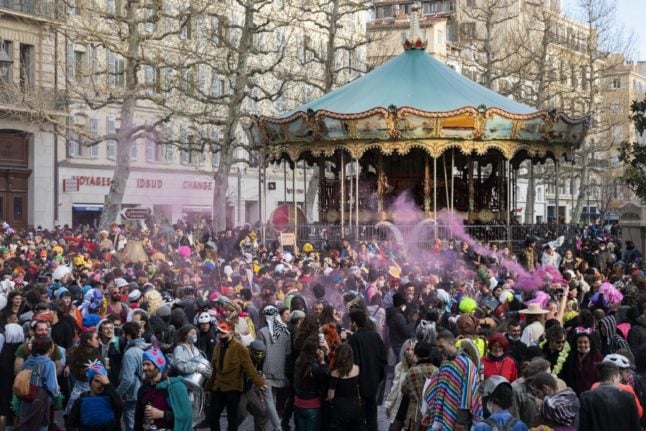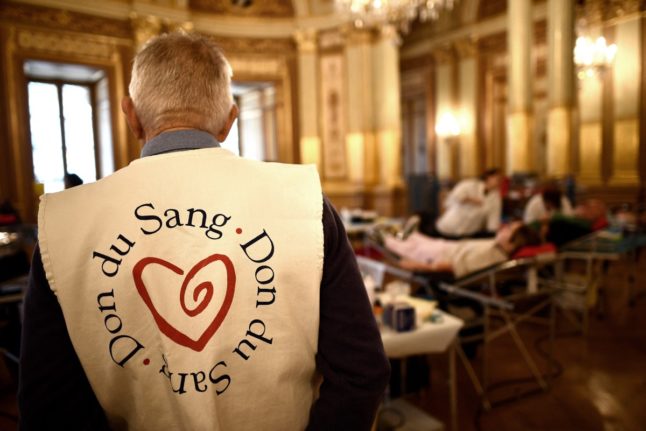The carnival-type gathering in the port city drew mostly young people, many of whom expressed frustration at restrictions on gatherings and the closure of bars and nightclubs during the pandemic.
Marseille was not among the 16 different regions which entered a fresh lockdown on Saturday, although the wider département of Bouches-du-Rhône is on the list of areas ‘at risk’ of further restrictions due to high case numbers and pressure on local hospitals.
MAP: Is your French département at risk of going into ‘lockdown light’?
“It’s completely unacceptable at a time when all of us are making efforts, are adapting and organising ourselves to respect the different rules in order to fight against the pandemic,” interior ministry spokeswoman Camille Chaize told Franceinfo radio on Monday.
Nine people had been arrested and dozens had been fined, she said.
The mayor of Marseille Benoit Payan said he was “outraged” by the event, adding on Twitter: “Nothing justifies that we undermine our collective efforts to keep the virus at bay.”
The French government introduced a limited lockdown on Saturday for around a third of the population, with all non-essential shops shut and travel banned in these zones, but schools are open and people are allowed to leave their homes at will.
Over the New Year period, around 2,500 young people broke a national curfew to attend an illegal rave in northwest France which embarrassed the government and led to questions as to why the partying was allowed to continue for two nights by the police.



 Please whitelist us to continue reading.
Please whitelist us to continue reading.
Member comments